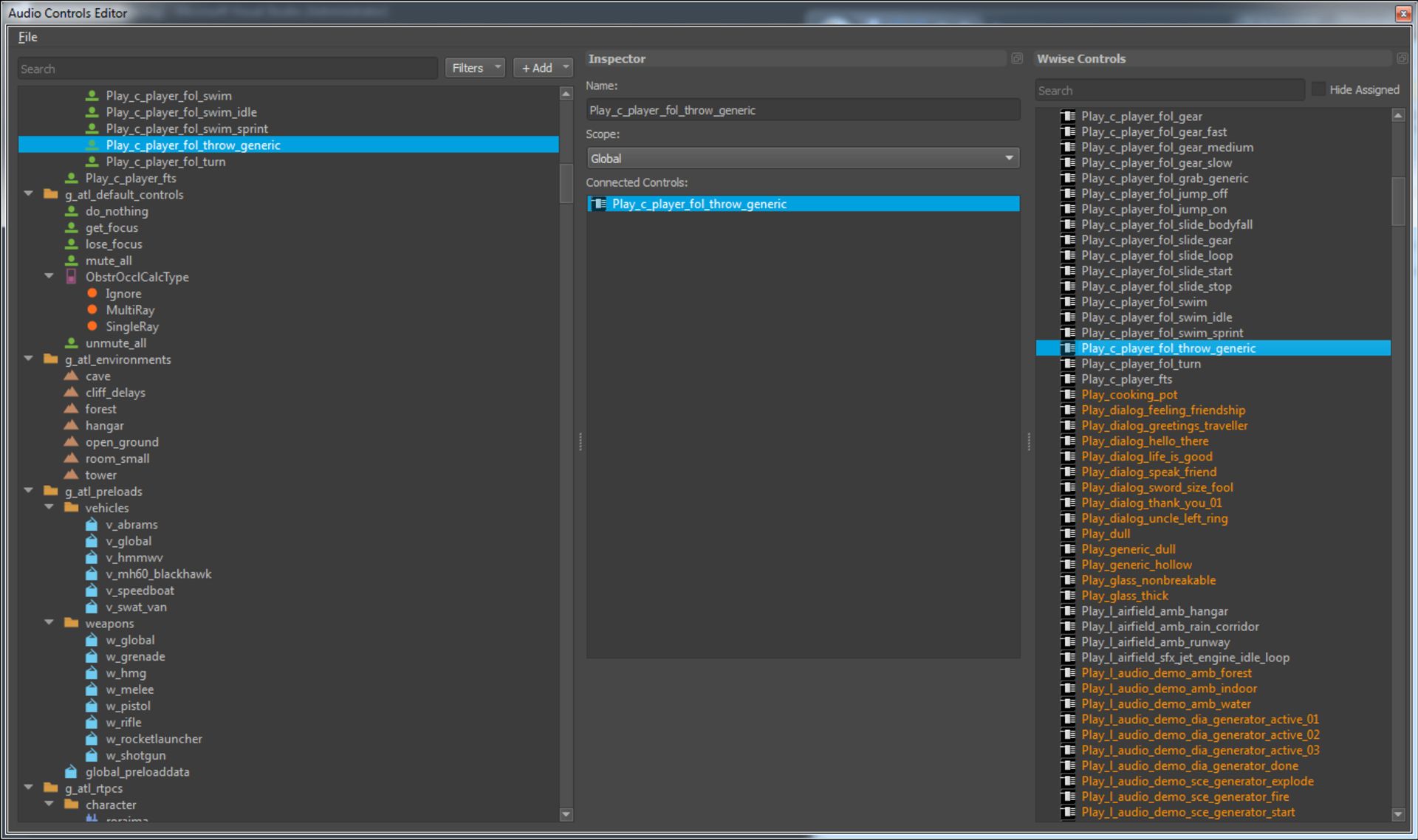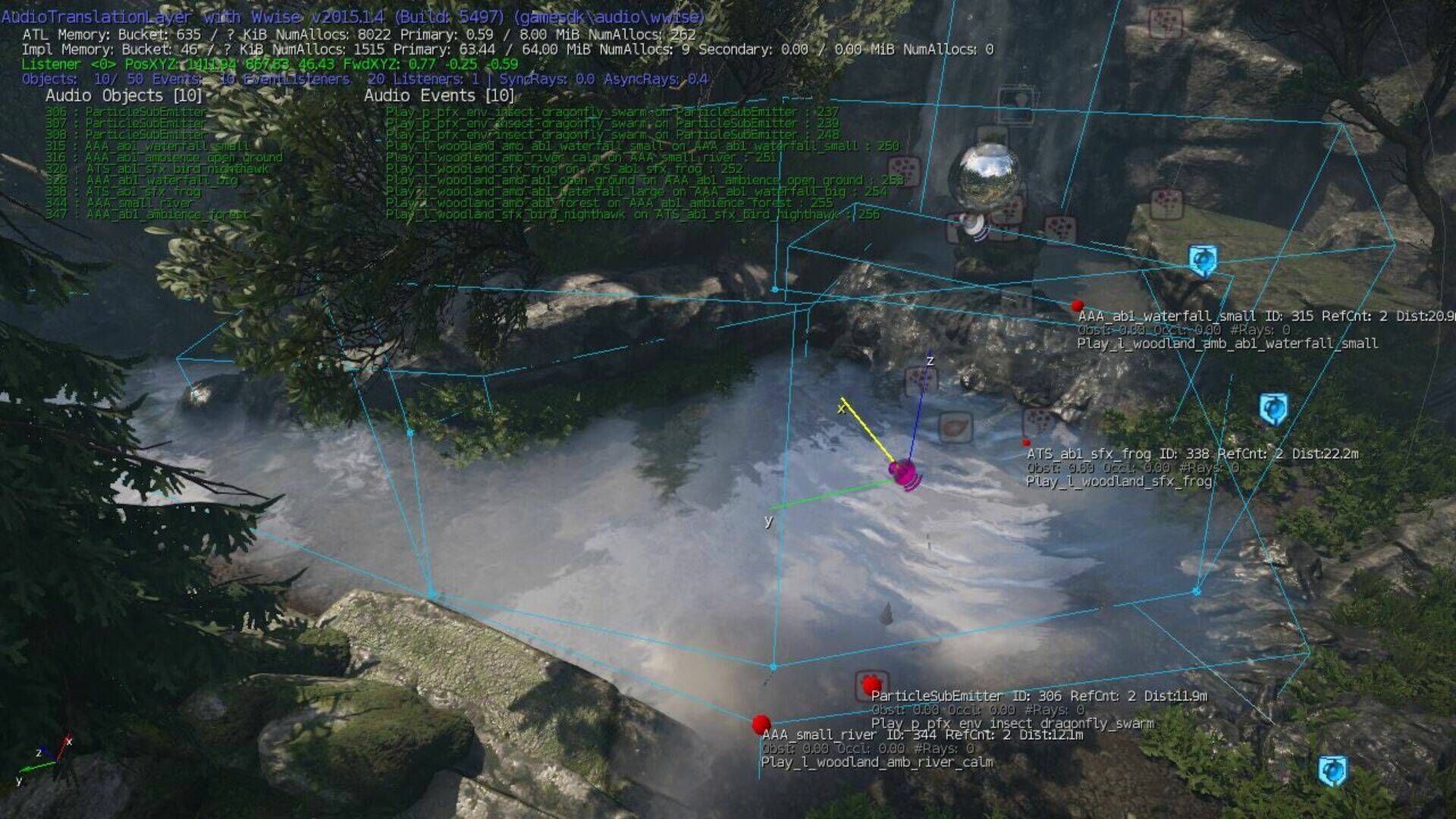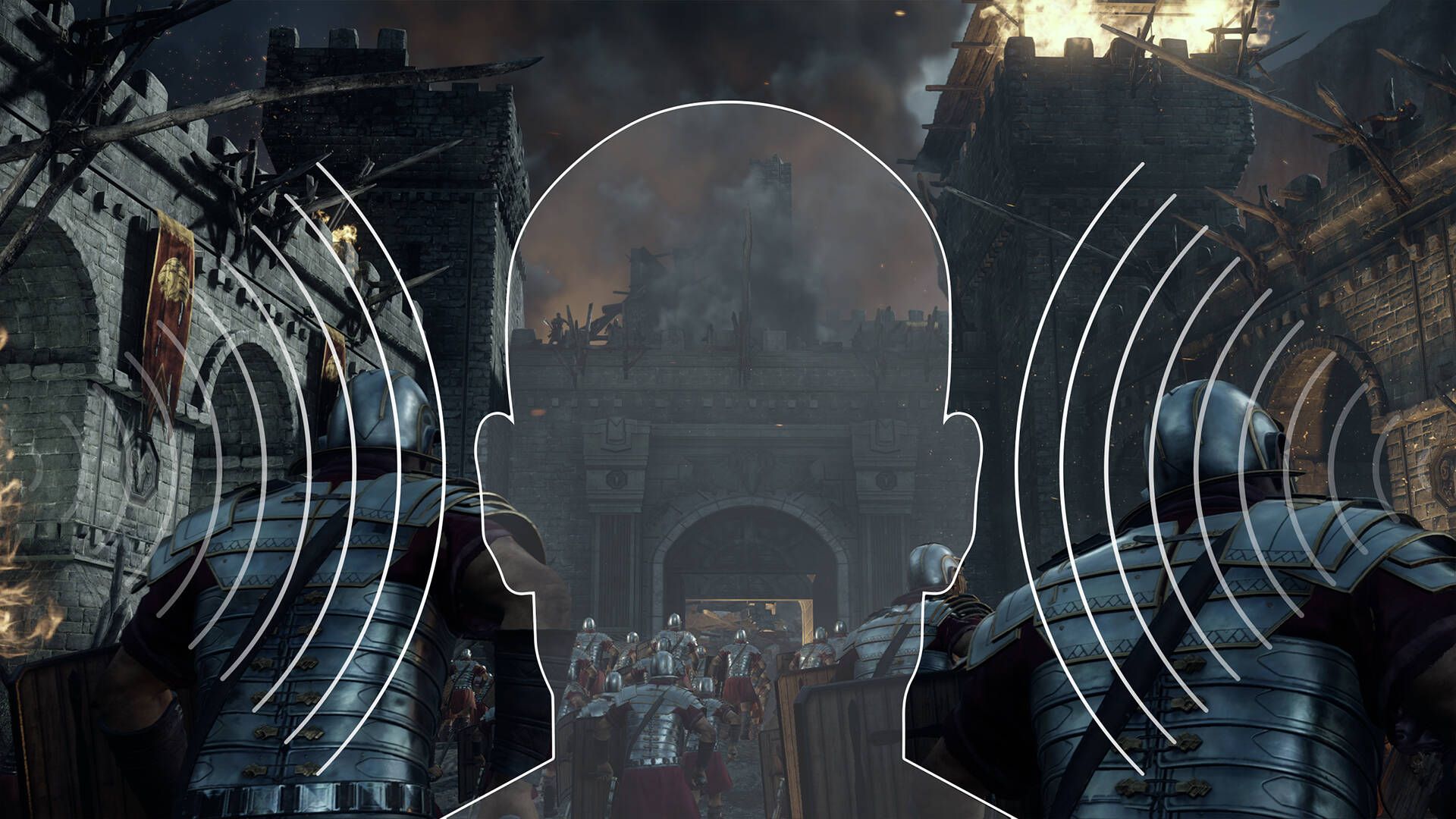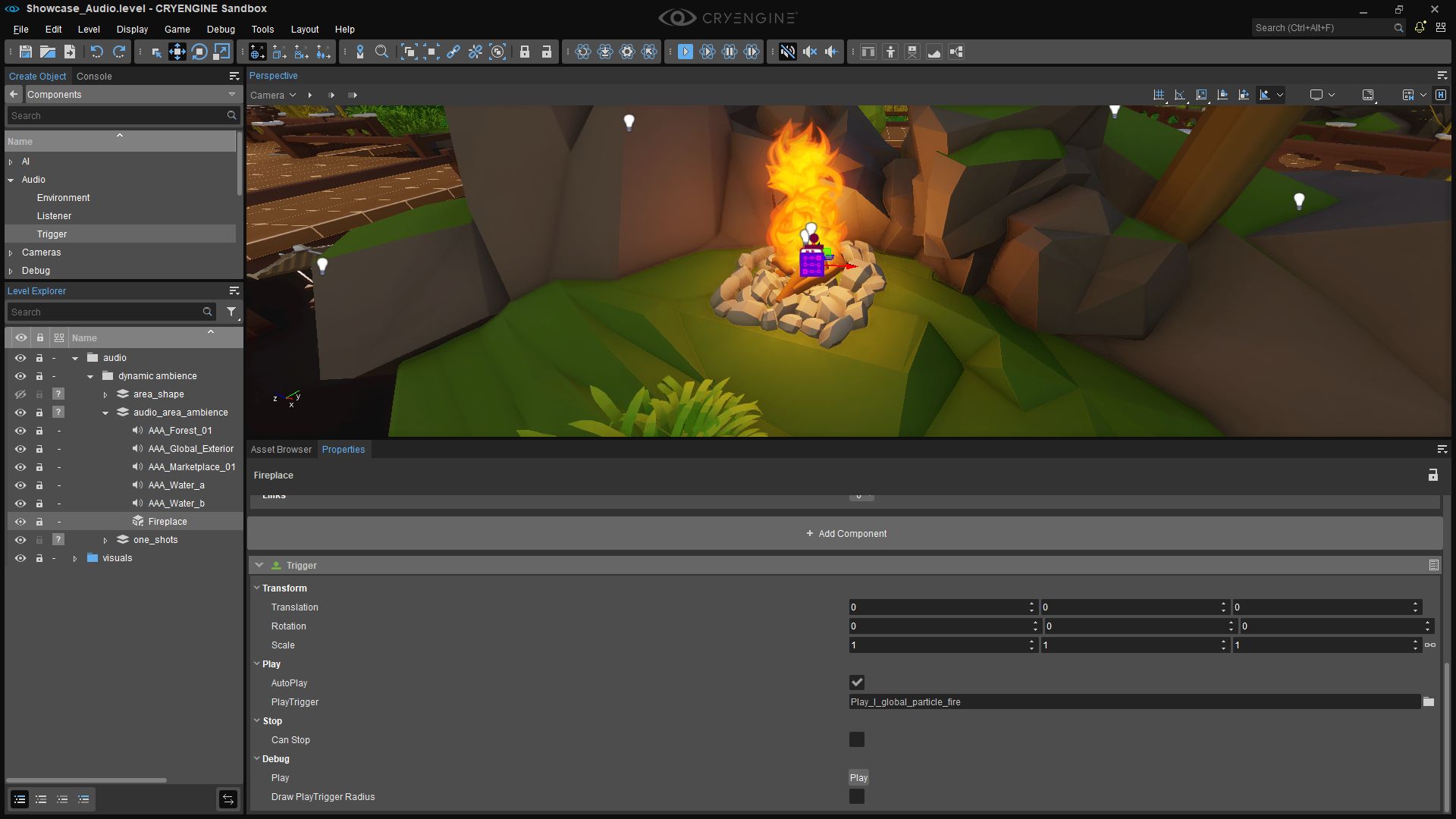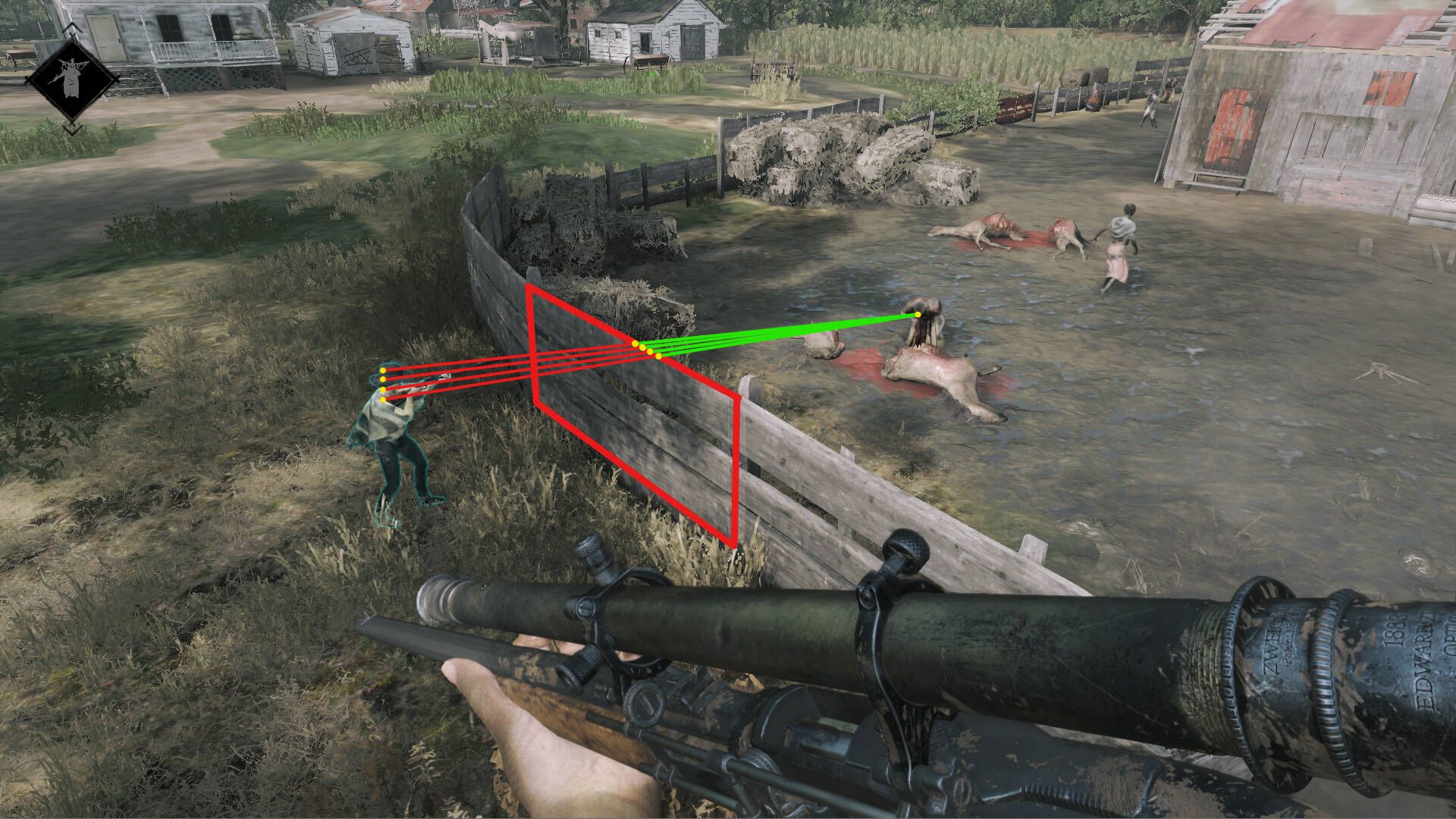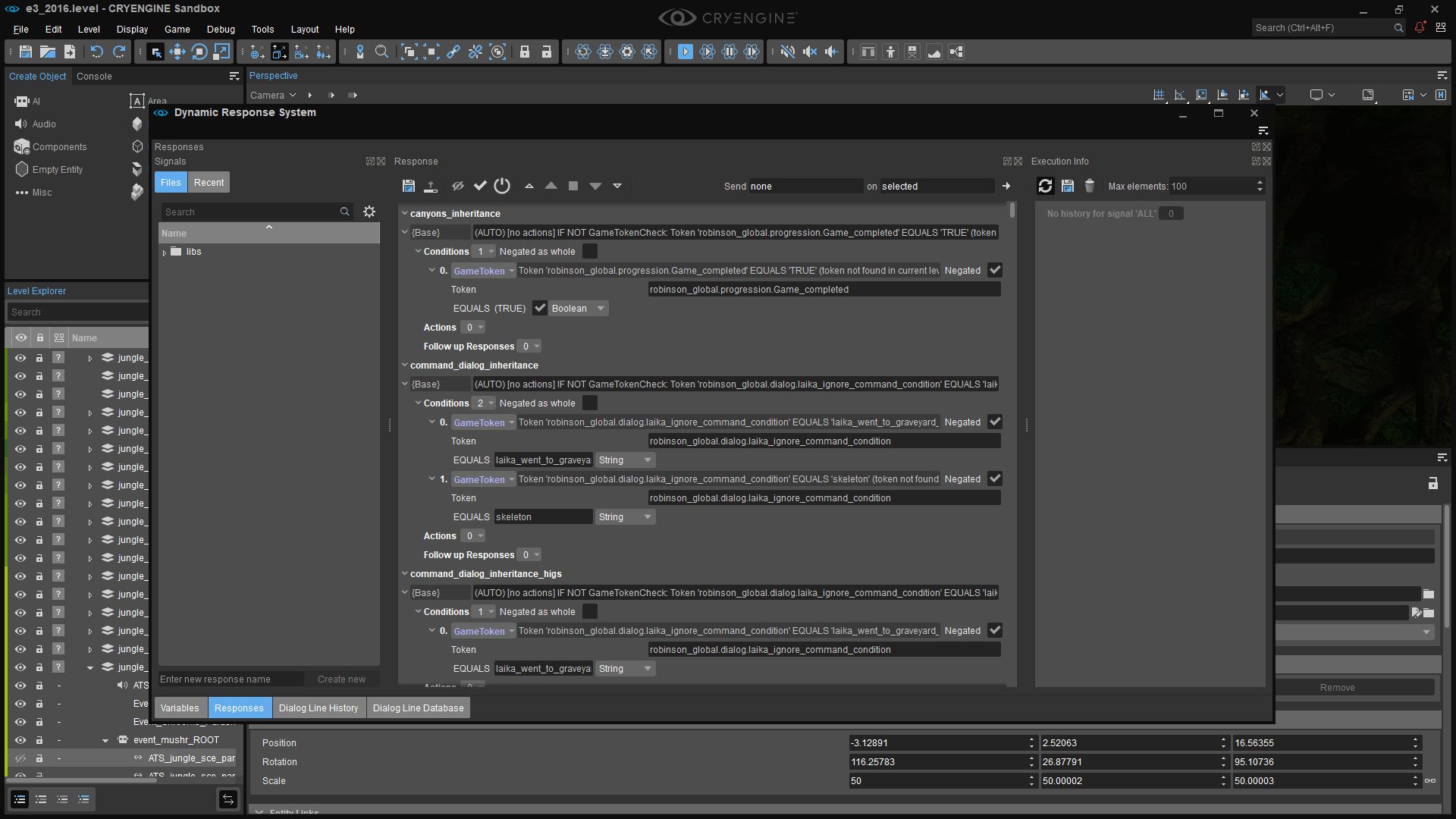
Audio
Audio Controls Editor (ACE)
More efficient than ever
The CRYENGINE Sandbox Editor now includes the Audio Controls Editor (ACE). This powerful tool allows for fast, flexible, drag and drop style creation and connection of: Events, Switches, States, and RTPCs, as well as granular management of pre-loading Soundbanks.
Changes to the ACE are updated in real time with audio instantly playing and no application restart required. The Audio Controls Editor (ACE) has a fully-featured search and filtering component, making it fast and simple to find, view or edit even vast amounts of audio events.
Audio Abstraction
Unprecedented freedom to chose your middleware
CRYENGINE agnostically communicates with whichever audio middleware you prefer, such as CRI ADX2, FMOD Studio, Miles Sound System, or Wwise, via its audio abstraction.
CRYENGINE also comes with a cost-free alternative in the form of the SDL_mixer implementation. The named middlewares are supported out of the box and can be enabled by flipping a switch.
HRTF Audio Spatialization
Mimic the acoustic signatures of real-world sounds
Our Head-related transfer function (HRTF) implementation means you can take full advantage of real-time 3D audio processing to provide accurate, real-world acoustic properties of sound propagation directly to your ears. It’s as if you were really there.
Audio Components
Access all audio features conveniently via audio components
Users can utilize the full power of CRYENGINE’s audio pipeline, including area-based reverb and ambiance blending, spot FX, and audio control manipulation, by using audio components.
Audio Occlusion
Use CRYENGINE’s powerful sound occlusion system
CRYENGINE calculates its own direct sound occlusion and integrates it seamlessly with supported audio middleware.
Dynamic Response System (DRS)
Create simple or complex behaviors by using a sophisticated decision-making system
Dynamic Response System (DRS) introduces a new way to implement dialogues in a game. It decouples the dialog-feedback relationship and game logic. DRS achieves this by adding an abstract layer between something happening and a running dialog feedback. DRS can also be used to leverage any other system such as, for example, Animation, Particles, or Physics.
